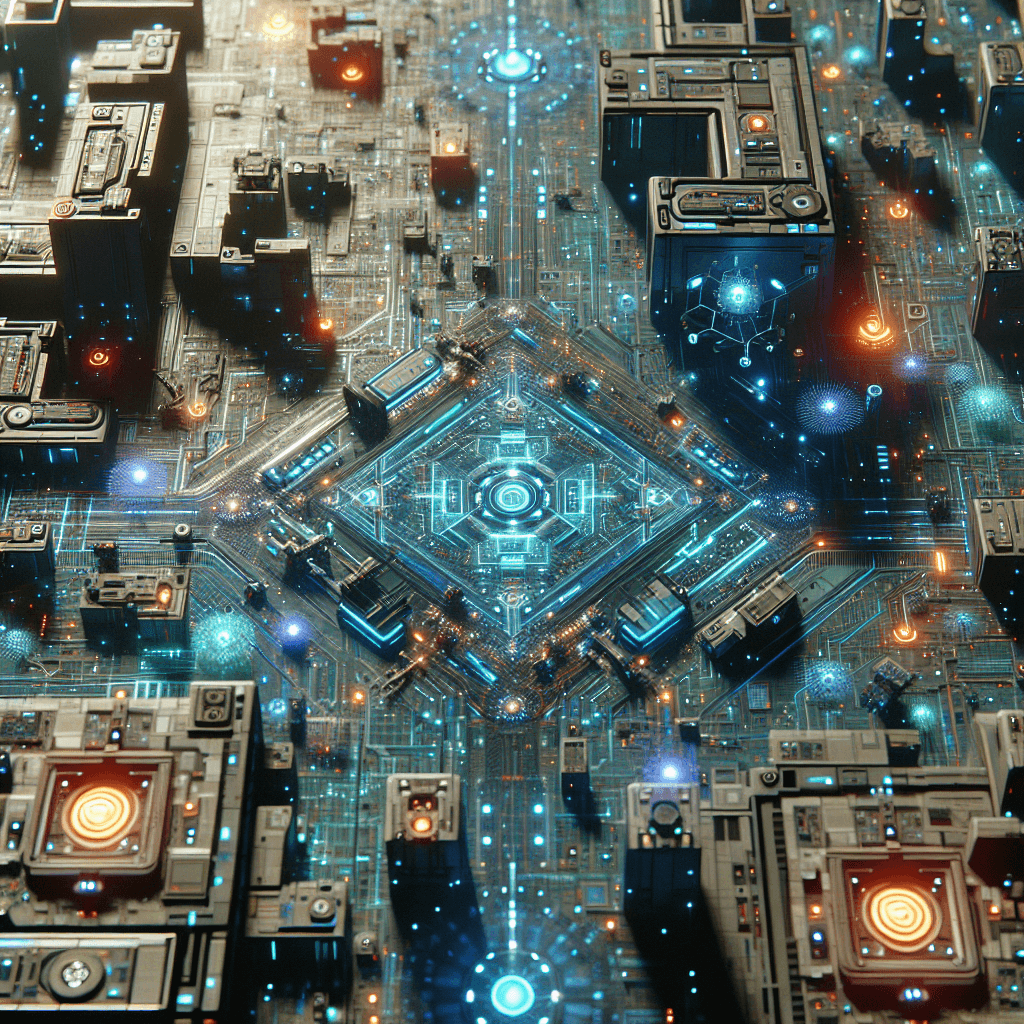Star Atlas Game Economy Review by Titan Analytics

Star Atlas Game Economy Review: A Titan Analytics Perspective
Ah, welcome to the future of gaming, folks! It’s like watching a toddler play with blocks while the adults argue about whose turn it is to use the bathroom. Today, let’s peel back the layers of the Star Atlas game economy, as dissected by Titan Analytics. And trust me, you’ll want to stick around; it’s a cosmic journey that might just make you feel a bit smarter—or at least more confused.
Now, Star Atlas pitches itself as a “grand strategy game of space exploration,” and if you squint hard enough, you can almost see the galaxy reflected in your high-tech gizmo. Built on the Solana blockchain, it’s like mixing your grandma’s old space toys with a fancy new iPad—exciting, but probably a little messy.
The Economy: A Galactic Enigma
Let’s start by talking about the economy. If you think your local coffee shop has a complicated pricing system, wait until you look at Star Atlas. The game employs a dual-token economy: ATLAS and POLIS. ATLAS is your everyday currency—think of it as the shiny coins in your pocket. It’s used for all those delightful in-game purchases, from ships to squishy little alien pets. POLIS, on the other hand, is like that smart kid who gets better grades than you. It’s governance-focused and gives players a say in how the game evolves.
These tokens don’t just exist in a vacuum; they swirl around in a beautifully chaotic ecosystem. Players mine resources, trade assets, and upgrade their ships—like a DIY project gone wrong in space. The economic model encourages you to engage in P2E (play-to-earn), which, let’s be honest, is the new buzzword everyone’s trying to monetize. As if our day jobs didn’t have enough pressure already!
Gameplay: A Space Odyssey
Star Atlas isn’t just an economic simulator; it’s a full-blown space adventure. Picture this: you’re piloting your ship, exploring distant planets, engaging in battles, and somehow avoiding intergalactic hospital bills. The gameplay offers players a chance to carve their own destinies, establish territories, and, of course, clash with rival factions—because what’s a video game without a good old-fashioned turf war?
The game’s immersive experience is complemented by stunning visuals that would make even NASA jealous. And if you’re a fan of trading—well, buckle up. The in-game marketplace is bustling like a New York street corner. Buying and selling ships is just another Tuesday in this cosmic playground.
Risks and Rewards
Now, for the grand finale—let’s chat about risk. Star Atlas isn’t just a stroll through a park; it’s a rollercoaster ride. The game is still in development, and like a stage play that’s barely out of rehearsal, there are plenty of moving parts. Price volatility, regulatory concerns, and game mechanics can shift faster than a cat on a hot tin roof. So, step carefully, my friends.
Conclusion
In closing, Star Atlas is a cosmic cocktail of opportunity, chaos, and risk—all garnished with a sprig of blockchain flavor. If you’re the kind of person who likes to explore the outer reaches of space while simultaneously wondering if you’re making sound financial decisions, this game might just be your golden ticket.
Want to delve deeper into the cosmic currents of Star Atlas? Visit Titan Analytics’ Star Atlas data modules for an analytical treasure trove. And if you’ve got questions, don’t hesitate to reach out to Titan Analytics—because even the best star navigators need a helping hand sometimes.




